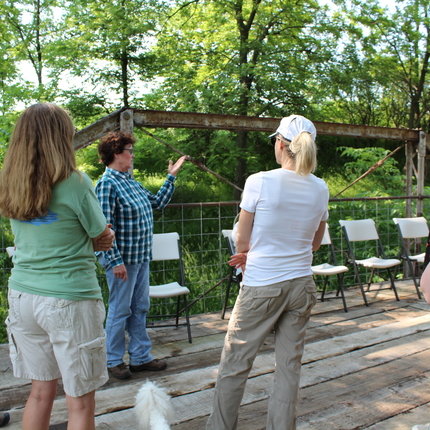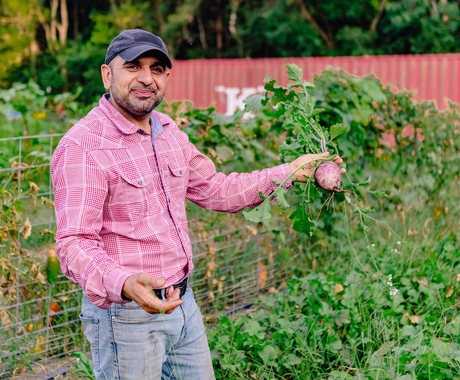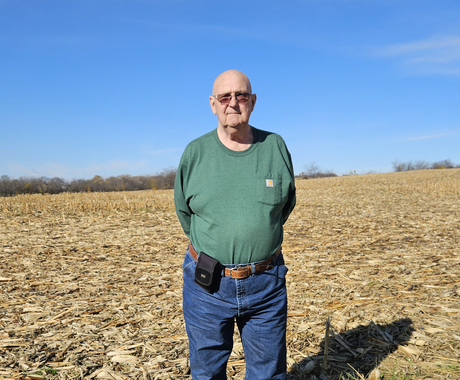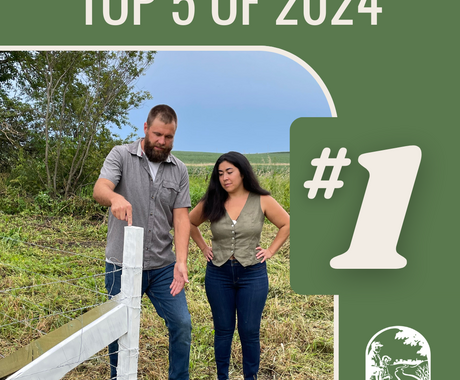Marilee Polacek and her daughter, Katie, didn’t plan on getting into agriculture, but now that they are, they want to treat their land right.
Their farm, located outside Bruno, Nebraska, on Skull Creek, has been in the Polacek family for 120 years. Since Marilee’s husband, Louie, passed away 14 years ago, Marilee and her three children have mostly rented out the land for farming.
This spring, Katie is planning to take over five acres of the cropland to put it in a grass cover crop. Katie and Marilee’s desire to restore their family’s land to what it once was led them to check out the Center for Rural Affairs’ Women’s Learning Circles for guidance.
The learning circles are peer group sessions that consider participants as the experts on their own production, farmland, and conservation needs. Information, experience, and resources are shared at each circle, allowing women to implement what they’ve learned into their own farm business or operation.
Since retiring from teaching in 2017, Marilee has searched for a way to transition the farm to her children. That is what attracted her to the first learning circle she attended.
“Many of the questions and hurdles I had been facing were addressed,” she said. “It gave me hope when I heard other women tell their stories and share their ideas. It made me feel less alone in facing the future in regards to how the farm could go on and how changes could be made.”
Katie became involved soon after that, and says because of the learning circles, she learned of practices that have been successfully implemented by other women farmers.
“We saw these learning circles as a way to expand our knowledge, to network with those in similar situations, and to see what was possible with what we had,” said Katie. “We are working to find a niche that we can explore and hopefully will work for our farm, and learning from these women has been incredibly beneficial.”
Currently, the Polacek farm is home to several hens, one rooster, a few ducks, and two horses. Marilee is planning on raising around a dozen more chickens this spring, and will sell the eggs.
They are not stopping there, however. The women have big ideas for further expansion and the addition of more conservation practices on their farm.
“We want to buy some calves and start raising a few head of grass fed beef,” said Marilee. “We will have to start small and see how we can handle this.
Marilee says her late husband raised cattle for many years, but in the 1990s, during a very dry period, he got a job off the farm, and the herd was sold. He raised some sheep and hogs, as well, but after he passed in 2005, Marilee sold the livestock and supported herself and her family through her educator’s salary, and from the cash rent farm income.
Jim Miratsky has farmed their 220 acres of land for four years. He alternates corn and soybeans. Late last summer, he planted a narrow patch of cover crop of barley, turnips, and radishes in one of the fields near the creek, after he chopped the existing corn crop on that field. Marilee hopes that he finds this beneficial and will do it on more of the cropland.
The mother-daughter duo is ready be more active in agriculture, as well.
“Together, Katie and I have contacted the Natural Resource District (NRD), and have applied for a buffer strip along the creek to help with erosion,” said Marilee. “We have attended the Center’s learning circles on beekeeping, and are hoping to either lease out our property to other beekeepers or start our own hives.”
All these big plans are being made with one goal in mind—making sure their land is around for farming for another 120 years and beyond.
“I care about keeping the land sustainable,” said Katie. “The location of our land has its own pitfalls and issues, such as erosion and previous overgrazing. We want to bring the land back as close to what it once was, and then find a way to sustain our changes.”
Feature photo: Katie Polacek and Marilee Polacek (two women at center of photo) attend a Women's Learning Circle event near Blair, Nebraska, last May. The mother and daughter didn't plan on getting into agriculture, but now that they are, they want to treat their land right. That's what led them to check out the Center for Rural Affairs' Women's Learning Circles for guidance. | Photo by Rhea Landholm





